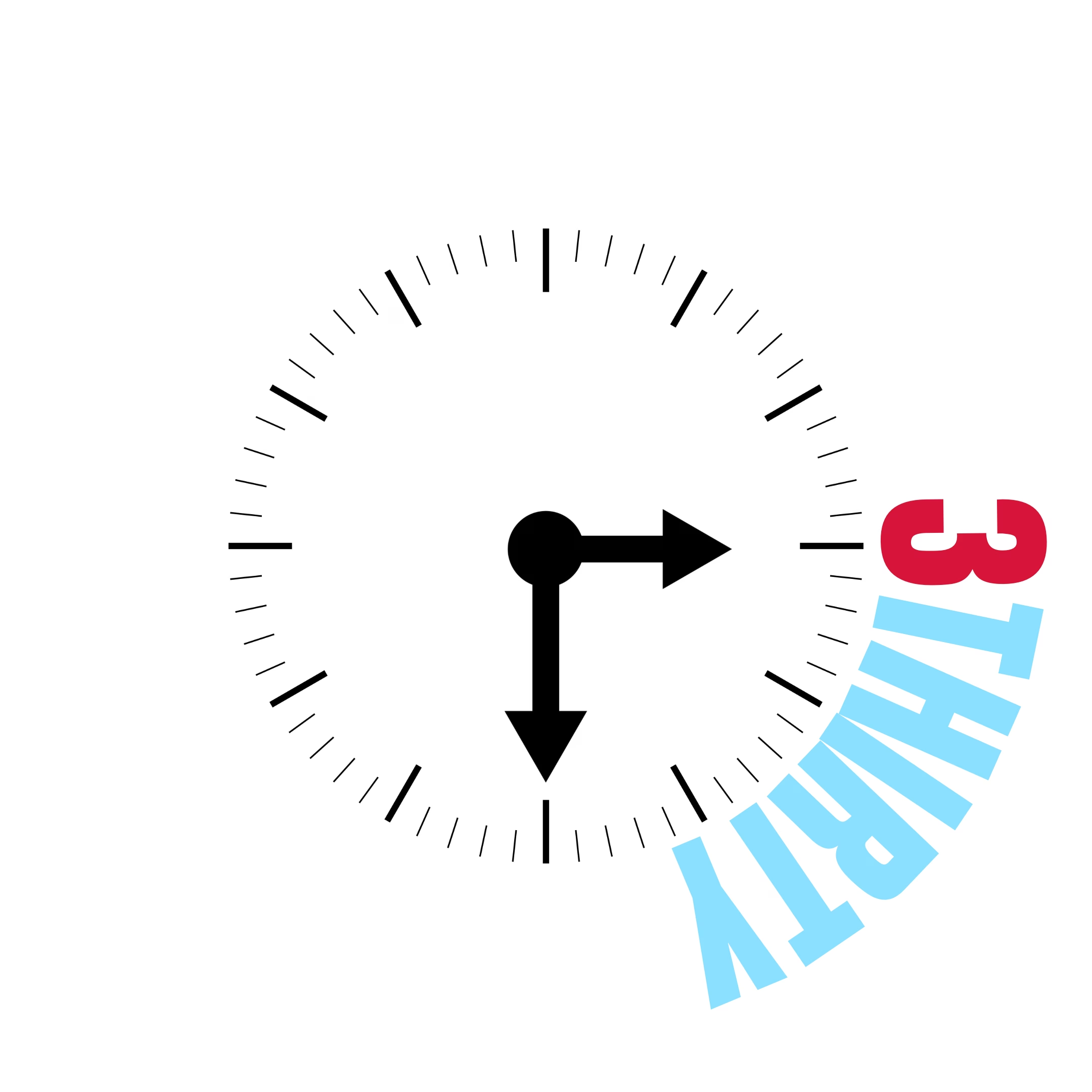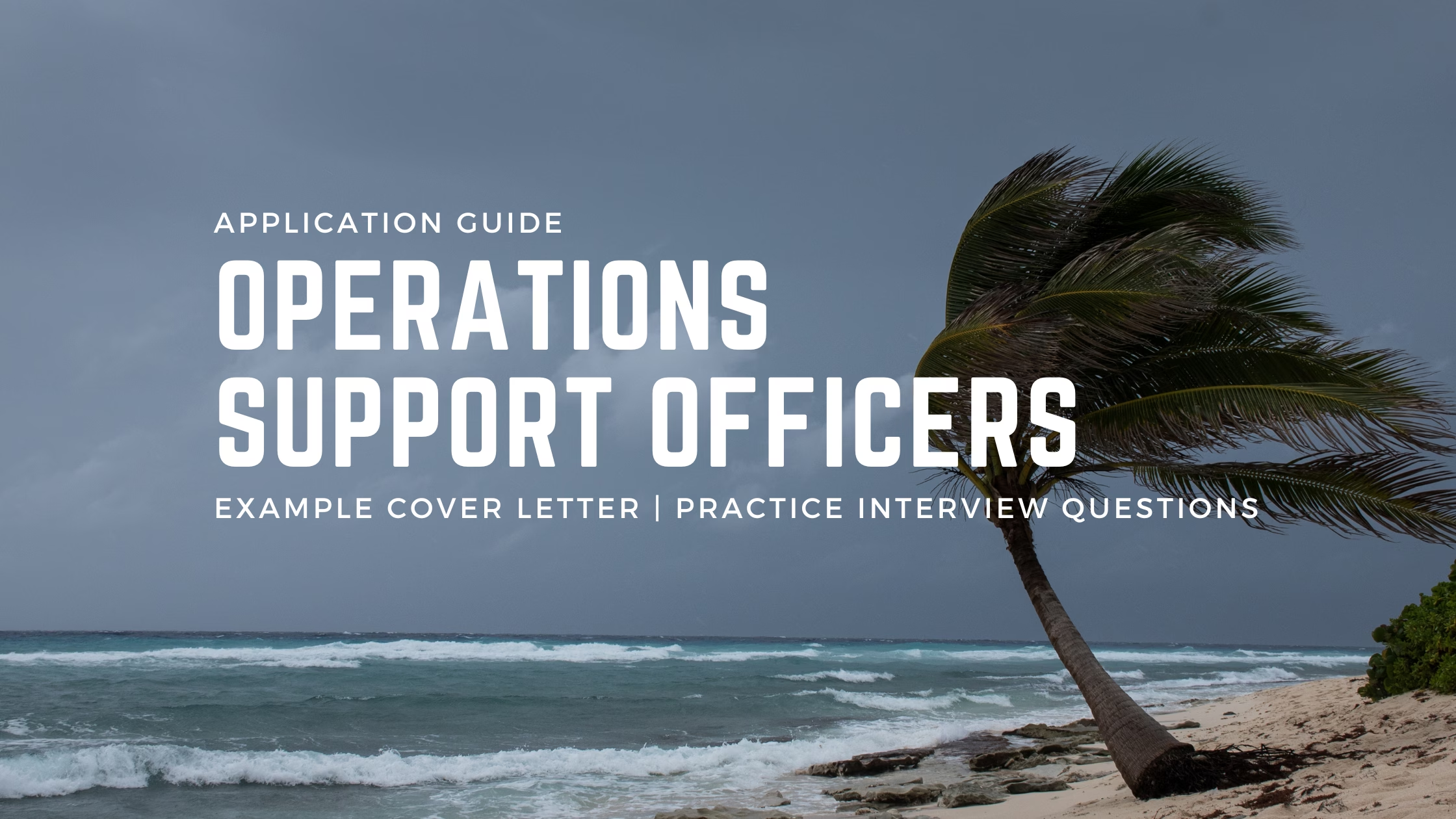Following the devastating impact of Tropical Cyclone Alfred, the NSW Government is urgently recruiting Operations Support Officers to process disaster relief payments.
If you’re looking for a dynamic state government job, the Operations Support Officer role at Revenue NSW could be your ideal opportunity. As part of the Disaster Relief Grant team, you’ll play a crucial role in helping individuals and families rebuild their lives after natural disasters—while developing valuable skills in customer service, grants assessment, and cross-departmental collaboration.
This is an urgent recruitment drive for multiple temporary positions (up to 6 months), and applications close in just one week. To maximise your chances, use the expert advice and resources below to craft a standout application.
For those seeking a pathway into the NSW Public Sector, this role offers a rare opportunity to gain hands-on experience in government operations. With multiple vacancies available, now is the time to apply.
As an Operations Support Officer, your daily tasks will be varied and fast-paced—from assessing applications to providing clear guidance to disaster-affected applicants in a high-volume call centre environment. This role is ideal for those who thrive under pressure, excel at problem-solving, and are committed to delivering exceptional service.
If you’re new to public sector recruitment, check out this unofficial guide to NSW Public Sector recruitment for more insider tips and context. Ready to learn more? Keep reading to see how this role can kickstart or enhance your public sector career.
Table of Contents
Revenue NSW Operations Support Officer Salary and Overview
| Position Title | Operations Support Officer- Click Here To Apply |
| Organisation/Entity | Revenue NSW (Department of Customer Service) |
| Job Location | Multiple Locations (Parramatta, Gosford, Maitland, Wollongong) |
| Work Type | Temporary (up to 6 months) |
| Base Pay | $82,193 – $90,001 + super |
| Closing Date (Urgent) | 24/03/2025 – 10:00 AM |
About Revenue NSW and the Opportunity
As an Operations Support Officer, you’ll be placed within the Disaster Relief Grant (DRG) team, part of the Taxes & Grants division in Revenue NSW. This team processes disaster relief grants for low-income earners whose homes have been damaged by natural disasters. You’ll assess eligibility, investigate applications, and communicate with applicants to provide clear information and support throughout the process.
Because Revenue NSW is the state’s principal revenue management agency, you’ll also be exposed to a broader mission of collecting revenue, resolving fines, and administering grants. This is a state government job that offers valuable insights into how the NSW Public Sector manages its resources to support communities in need.
Challenges for Operations Support Officer
Stepping into this temporary government job means being ready for a series of unique challenges:
- Fast-paced environment: You’ll respond to inquiries swiftly, handle high call volumes, and remain calm under pressure.
- High-volume tasks: Assess multiple applications, each requiring careful scrutiny to ensure compliance with eligibility criteria for disaster relief grants.
- Attention to detail: Applicants rely on your accuracy for timely and correct grant decisions.
- Team collaboration: As part of a supportive team, you’ll share information, workload, and strategies to meet daily targets.
Why an Operations Support Officer Position Is a Great Opportunity
This temporary role with the Department of Customer Service offers a chance to enter the public sector recruitment pipeline with strong future potential.
Even though it’s a short-term position, you gain immediate benefits that could propel you into other government jobs:
- Multiple Locations: Work from several possible offices (Parramatta, Gosford, Maitland, or Wollongong), offering convenience and flexibility.
- Career Growth: Experience in grants assessment and working with Revenue NSW looks great on a resume, opening doors to further NSW Public Sector roles.
- Contributing to Disaster Relief: You can make a tangible impact by helping people restore their homes after natural disasters.
- Call Centre Environment: Enhance your skills in customer service, conflict resolution, and quick problem-solving.
- Flexible Work Arrangements: Spend at least three days in the office and potentially work from home on the other days.
- Unique Collaboration: You’ll partner with the NSW Reconstruction Authority, broadening your understanding of inter-agency processes.
By honing your customer service and problem-solving skills, you can make yourself a strong candidate for future government job openings. Plus, it’s rewarding to know that each grant you process helps someone in genuine need.
Application Requirements for Operations Support Officer
Operations Support Officer Application Process
To apply for this NSW Public Sector role, you need to prepare:
- an up-to-date CV (no more than five pages)
- a brief one-page cover letter.
Since there are no target questions specified in this job ad, focus on highlighting your relevant experience and alignment with the role’s responsibilities. Make sure to showcase your suitability for a call centre environment and disaster relief grants assessment work.
Don’t forget the broader recruitment process of the NSW Public Sector. It’s often more structured than private sector recruitment, and “how to apply” will be structured around the role’s focus capabilities. In this case, you’ll need to demonstrate how your background matches the essential requirements below, supported by real-life examples.
Essential Role Requirements
According to the job advertisement, the role requires:
- Strong customer service experience
- Excellent attention to detail
- The ability to work effectively in a fast-paced environment
- A team-oriented attitude and collaborative mindset
Desirable Experience
Beyond these fundamentals, candidates with a background in call centre operations, grants processing, and thorough knowledge of government procedures may find they have an edge in this public sector recruitment process. Additionally, experience with managing high-volume workloads and familiarity with software used in grant assessments could be beneficial.
What to Include in Your Government Cover Letter
With no specific target questions or key criteria sections to respond to, make sure you still address:
- All Essential Role Requirements (or “must-have” criteria) mentioned above
- Any relevant focus capabilities outlined in the role description
If this is your first time writing a government cover letter, make sure you read my guide on how to write a cover letter for government jobs.
Your cover letter is what will determine if you get anywhere in this recruitment. If you’re unsure how to structure yours, download a free cover letter template and tailor it to the Operations Support Officer context.
Understanding and Addressing Focus Capabilities
The NSW Public Sector evaluates applicants based on specific capabilities, known as “focus capabilities.” These are tied to the NSW Capability Framework, which outlines the knowledge, skills, and abilities that are crucial for success in government roles.
The focus capabilities for this role are all at the intermediate level. Here are the four focus capabilities:
| Focus Capability | Description | Key Behaviours |
|---|---|---|
| Act with Integrity | Be ethical and professional, and uphold and promote the public sector values. | Represent the organisation in an honest, ethical, and professional way. Support a culture of integrity and professionalism. Understand and help others recognise their obligations to comply with legislation, policies, guidelines, and codes of conduct. Recognise and report misconduct, illegal, and inappropriate behaviour. Report and manage apparent conflicts of interest and encourage others to do so. |
| Commit to Customer Service | Provide customer-focused services in line with public sector and organisational objectives. | Focus on providing a positive customer experience. Support a customer-focused culture in the organisation. Demonstrate a thorough knowledge of the services provided and relay this knowledge to customers. Identify and respond quickly to customer needs. Consider customer service requirements and develop solutions to meet needs. Resolve complex customer issues and needs. Cooperate across work areas to improve outcomes for customers. |
| Think and Solve Problems | Think, analyse and consider the broader context to develop practical solutions. | Identify the facts and type of data needed to understand a problem or explore an opportunity. Research and analyse information to make recommendations based on relevant evidence. Identify issues that may hinder the completion of tasks and find appropriate solutions. Be willing to seek input from others and share own ideas to achieve best outcomes. Generate ideas and identify ways to improve systems and processes to meet user needs. |
| Technology | Understand and use available technologies to maximise efficiencies and effectiveness. | Demonstrate a sound understanding of technology relevant to the work unit, and identify and select the most appropriate technology for assigned tasks. Use available technology to improve individual performance and effectiveness. Make effective use of records, information, and knowledge management functions and systems. Support the implementation of systems improvement initiatives, and the introduction and roll-out of new technologies. |
Before sending in your application review the focus capabilities a number of times. Each capability has various behavioural indicators. Your task is to link your experience—outlined in your resume and cover letter—to these indicators. This shows the hiring panel that you understand the key requirements and demonstrates your readiness for the demands of the job.
Revenue NSW Operations Support Officer Application Checklist
| Checklist | Completed? |
|---|---|
| Write a cover letter using a free template, and include STAR method examples aligned to the essential role requirements. | |
| Get your cover letter reviewed for only $29 to significantly improve your chances. | |
| Submit your application before the closing date. |
Candidate Profile
Meet George, a customer service professional with three years of call centre experience and a passion for helping people navigate complex processes.
George has volunteered for the State Emergency Service in the past and is now looking to enter the public sector in a paid role. The Operations Support Officer job at Revenue NSW appeals to George because it aligns with his customer service background.
Seeking a new challenge and drawn to the mission of providing meaningful disaster relief, George believes that their ability to thrive in a fast-paced, high-pressure environment—as proven by years in a call centre environment—makes this a perfect fit.
Example Cover Letter For Revenue NSW Operations Support Officer
To The Hiring Manager
I am writing to apply for the Operations Support Officer position at Revenue NSW. As someone with three years of call centre experience and a background volunteering with the State Emergency Service, I am eager to bring my passion for public service, my ability to thrive in fast-paced environments, and my commitment to teamwork and integrity to this vital role. I believe my experience aligns closely with the expectations of the position, and I would like to illustrate my suitability by detailing some experiences through the STAR framework.
When it comes to Commit to Customer Service, I consistently focus on providing a positive experience and supporting a culture that values the needs of the people we serve. In my previous call centre role, I noticed that customers phoning about a newly introduced subsidy program often felt anxious and confused. My task was to quickly establish trust, relay correct information, and address their concerns with empathy. I took the action of creating an easy-to-digest internal guide for myself and my colleagues, which consolidated frequently asked questions, policies, and escalation protocols. As a result, our average handling time decreased by twenty percent, and our customer satisfaction ratings rose significantly. These outcomes underscore my commitment to delivering accurate details promptly, as well as my ability to cooperate across work areas to achieve better outcomes for customers.
For Think and Solve Problems, I draw on my attention to detail and capacity to analyse information. In my volunteer work with the State Emergency Service, I noticed that many people struggled to complete paperwork when requesting assistance after severe storms. My objective was to identify the relevant data and streamline the process. I gathered feedback from other volunteers, reviewed policy guidelines, and developed a simplified form, which I tested to ensure it captured all necessary information. The result was a significant reduction in completion times and errors, illustrating how my willingness to seek input, share ideas, and generate improvements can positively impact crucial processes.
My ability to work effectively in a fast-paced environment also relies on the Technology capability. In one call centre role, we were implementing a new CRM system while fielding a large daily volume of calls. I volunteered to be part of the early adopter group to understand the system’s functionalities, identify shortcuts, and advocate for improvements. I then trained my colleagues on how to use the new platform efficiently, emphasising record-keeping and knowledge management. This approach reduced call-handling times, showed my proficiency in selecting appropriate technology for assigned tasks, and demonstrated how I can support the implementation of new systems under pressing circumstances.
Lastly, my team-oriented attitude and collaborative mindset are intimately linked to Act with Integrity. During a surge in high-pressure escalation calls, I developed a protocol for handling potentially sensitive financial matters in a manner consistent with organisational guidelines and codes of conduct. I encouraged my teammates to report any apparent conflicts of interest or questionable conduct, ensuring our collective work environment remained honest and respectful. By fostering a culture of transparency and accountability, we resolved the backlog of cases faster and upheld professional standards without any breaches of procedure. This experience highlights how I strive to represent an organisation ethically, promote professionalism, and guide others to recognise their obligations under relevant legislation and policies.
I am motivated by the opportunity to join Revenue NSW and assist in delivering meaningful disaster relief. I would welcome the chance to discuss in more detail how my strengths in customer service, problem-solving, technology adaptation, and team collaboration can contribute to the success of the Disaster Relief Grant team.
Thank you for considering my application.
Kind regards,
George
Explain the STAR Technique
The STAR technique stands for Situation, Task, Action, and Result. It’s a structured way of highlighting how you’ve handled challenges or achieved goals in your past roles:
- Situation: Provide context for the scenario.
- Task: Describe the specific responsibility or objective you had.
- Action: Detail the steps you took to address the situation.
- Result: Explain the outcomes, ideally backed by measurable data.
In the example cover letter above, you can see how each anecdote is presented with these four elements clearly in mind. This method demonstrates your accomplishments but also shows you approach tasks methodically—a crucial point in many NSW Public Sector interviews.
How to Prepare for an Operations Support Officer Interview
NSW Public Sector interviews focus on key capabilities outlined by the NSW Capability Framework. Here’s how to get ready:
- Review the Focus Capabilities: Check the role description for specific capabilities and their associated behavioural indicators.
- Brainstorm Examples: Reflect on situations from your work history that show your strengths in each focus capability.
- Match to Indicators: Ensure each example aligns with the capability’s key outcomes (like delivering results or keeping customers informed).
- Use the STAR Method: Organise your responses clearly (Situation, Task, Action, Result) so the panel can easily follow your narrative.
- Practise & Use Notes (If Allowed): Rehearse your examples. If allowed, bring concise bullet points into the interview.
Three possible interview questions for the Operations Support Officer role could include:
- “Tell us about a time you had to deal with a high volume of complex inquiries. How did you manage your workload?”
- “Describe a situation where you had to apply attention to detail. How did you ensure accuracy?”
- “Explain a scenario where you collaborated with a team to improve customer service outcomes.”
Remember, all of the focus capabilities for this role are at the intermediate level. You can download a complete guide to preparing for Intermediate Level Capability Questions in Public Sector Interviews for $24. This includes practice questions for every single public sector capability, and example answers structured in the STAR format.
Get Ready To Apply For Operations Support Officer Role
Again, this is an urgent recruitment drive so you need to start your application now.
Click here to apply for the Operations Support Officer role and start your journey in a rewarding government job.
Throughout this process, remember the easiest, fastest, and most effective way to strengthen your application: get your cover letter reviewed for only $29. This review compares your real application to a hiring manager’s checklist, with feedback from a real government hiring manager.





